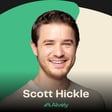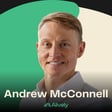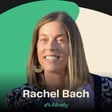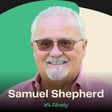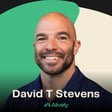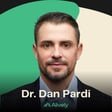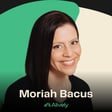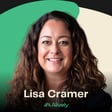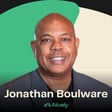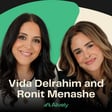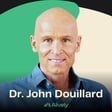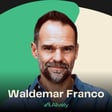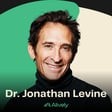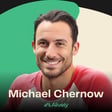
Embrace Yoga For Stress Management with Daria Salih - E48
Is your body constantly tense from daily pressures? Do you find your mind racing even when you're trying to relax? In our fast-paced modern lives, where demands seem endless and quiet moments rare, yoga offers a proven pathway to relief.
Today we explore the transformative power of yoga as a stress management tool. While yoga is now a common pastime for many, this episode will unpack how integrating even simple yoga techniques into your daily life can create profound shifts in how you experience and respond to life's inevitable pressures. We'll also look at how to build a deeply personal, holistic approach to daily health, so you can move beyond quick fixes and cultivate a vibrant sense of aliveness, every single day.
Daria Salih is a holistic health advocate and wellness educator with a candid approach to nutrition, stress management, and non-toxic living. Through her personal journey overcoming scoliosis and transitioning off pharmaceuticals, Daria has built a reputation for guiding others towards making empowered health decisions. She is certified in integrative nutrition through the Institute for Integrative Nutrition (IIN), and runs Sacred Soul, where she offers clients functional lab testing, cycle syncing, detoxification, and somatic work. She also hosts her own podcast, Conscious Conversations, where she encourages "deep healing through communication".
“What works for me is not going to work for someone else. And everyone is unique in their own essence.” - Daria Salih
In this episode you will learn:
- Why Daria considers being “alive” to mean connecting deeply to your body, senses, and emotions, and how breath is foundational to this experience.
- The journey from pharmaceuticals and restrictive eating toward holistic approaches, including an emphasis on intuitive nutrition, high-protein meals, and whole foods.
- Daria’s practical routines for improving sleep and managing stress, such as magnesium supplementation, red light therapy, blue light blockers, and somatic practices like yoga and dance.
- The importance of tailoring fitness to the body’s needs, including Daria’s experience with cycle syncing, functional movement, and evolving her relationship with exercise from intensity to intuition.
- How to reduce toxins in your environment—starting with food, water, and air quality—and the impact this has on long-term health and wellness.
- Insights into building supportive community and living with purpose, including the value of authentic social connection for overall wellbeing.
Resources
- Connect with Daria on Instagram: https://www.instagram.com/dariasavaya
- Learn more about her offerings with Sacred Souls: https://www.sacredsoulss.com/links
- Listen to her podcast “Conscious Conversations”: https://podcasts.apple.com/us/podcast/conscious-conversations/id1571015061
- Shop all the products Daria mentions in this episode: https://alively.com/products/daria-salih
This podcast was produced by the team at Zapods Podcast Agency:
https://www.zapods.com
Find the products, practices, and routines discussed on the Alively website:
https://alively.com/
